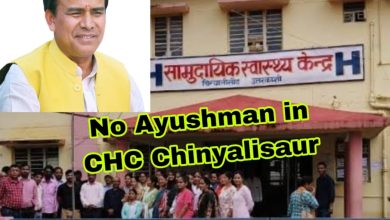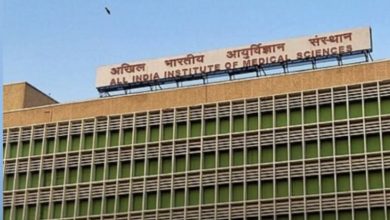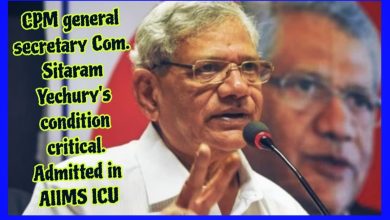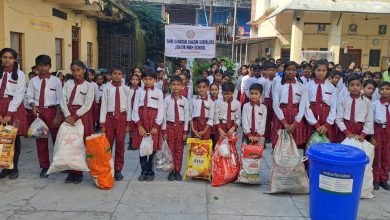Ageing population in India needs special attention: Israeli gerontologist
In India, the elderly population is estimated to reach 30 crore by 2050.
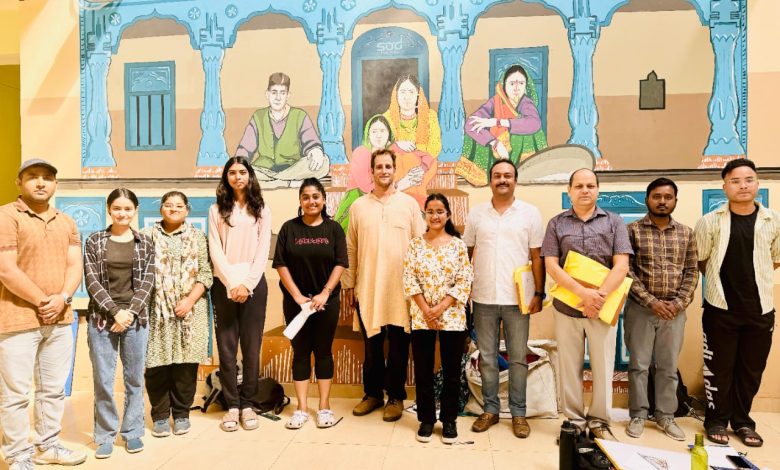
Dehradun, Oct 08:

India is going through a phase of rapid transformation with a number of problems springing up for the ageing population with regard to their health, security, psychological and emotional issues, a senior Israeli gerontologist told the students of Doon University here today.
Addressing the students in an interactive session organised by the Department of Social Work of Doon University, Mr Assaf Patrick, who has also been a Tel Aviv based journalist, said that under the impact of modernisation, urbanisation, technological changes and weakening of social values, the ageing community is increasingly going to be at the receiving end unless important steps are not initiated by the government, civil society and people in general.
Speaking both in English and chaste Hindi, Mr Patrick who holds a Masters in gerontology and is currently working with older people in Israel, particularly in the context of psychological impact of the conflict on elderly, emphasised that there is a special need for sensitivity towards older people and towards understanding their specific needs.
He discussed the need to keep a check on the deteriorating memory and mental health of older people and the need to involve them in mental activities like playing games and giving them entertainment and cultural life.
“It’s important to request them to focus on activities going on in the present moment.
They may not be aware enough of their old age and fragile status and that is why the caregivers has a crucial role to play in understating their physical, mental and psychological status.
Israel is facing growing problems of Alzheimer’s among older people which is a disease of brain disorder that gradually destroys memory and thinking skills. It’s the most common type of dementia and the leading cause of dementia in older adults in my country,” said Patrick.
Giving an overview of the status of older people in developing countries like India and developed Asian countries like Israel, Mr Patrick said that while Israel is not as modern as European countries but it is still modern and developed, and yet traditional in many ways. “While Israel still has a traditional society, Indian traditional society is much different with its immense cultural and ethnic diversity where older people mostly live with their children and have family members to take care of them.
However, whether they are taken care of as good as, or better than, in the western countries is a matter of concern and study,” said Mr Patrick.
Highlighting about the better conditions in Western countries he said that western countries have much better urban planning, hospital care and social security schemes where older people are able to live alone in a much more comfortable way. With the rise of modernity and nuclear family in India, and not with the same type of urban planning, hospital care and social securities suited for the need of older people, our challenges for coming time are immense.
Addressing the students, Professor Harsh Dobhal of Doon University said that traditionally the aged people held high place in Indian society compared to the west. “Indian value system had highest regard for the elder in the family where the eldest one would have the moral authority commanding highest respect from the rest of the family. This, however is gradually changing with rapid increase in nuclear families, migration and rapid process of urbanisation, ‘modernisation’ and dynamics and structural changes in economic and technological patterns.
Professor Dobhal stressed that majority of older people in India don’t have that much of financial security as yet. Though Indian culture attaches respect to older people, we need to negotiate the reality with changing contemporary social, cultural and economic patterns in the context of elderly population.
Dr Harsh Mishra and Dr Heman Tigga presented the vote of thanks at the end of the session.
Gerontology is the study of aging, including the biological, psychological, social, and cultural aspects of the process. It also includes the study of how society changes as its population ages, and how to apply this knowledge to create programs and policies.
In India, the elderly population is estimated to reach 30 crore by 2050. The large increase in human life expectancy over the years has resulted not only in a very substantial increase in the number of older persons but in a major shift in the age groups of 80 and above. The demographic profile depicts that in the years 2000-2050, the overall population in India will grow by 55% whereas the population of people 60 years and above will increase by 326% and those in the age group of 80+ by 700% – the fastest growing group. 1/8th of the world’s Elderly Population lives in India.

